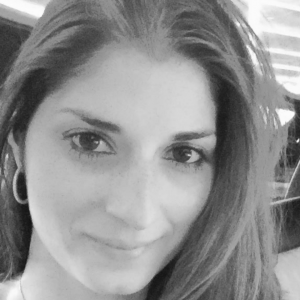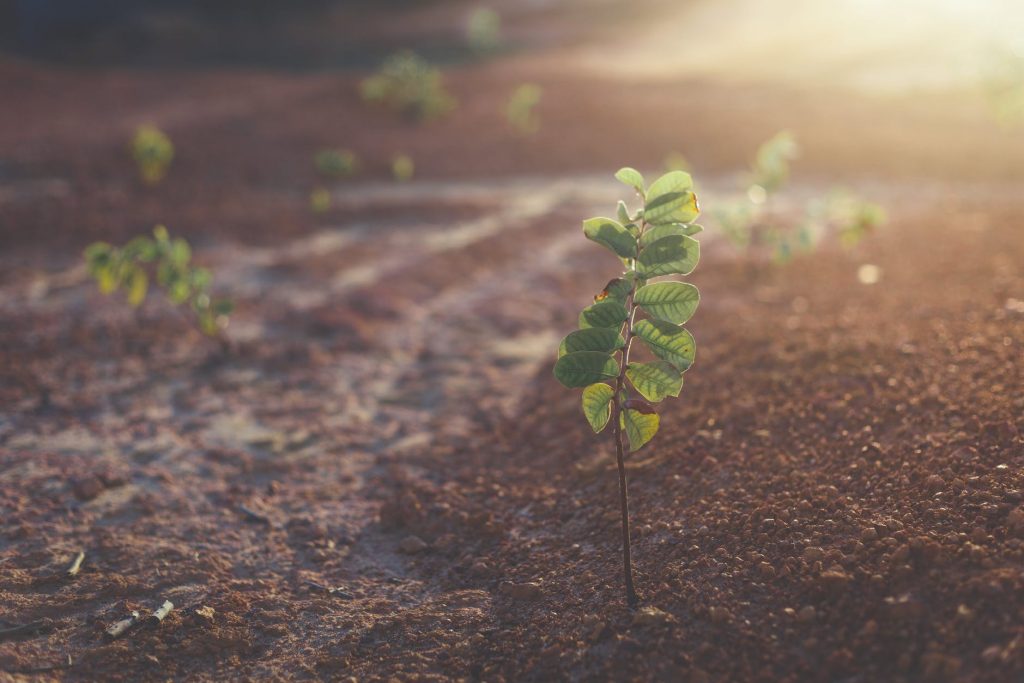Best Biology Science Tutors in the NYC Metro Area
Expert Biology Science Tutors in the NYC Metro Area | At-Home Support & Free Consultations. PRIVATE PAY TRAVELING TO:
New York City (NYC)
Manhattan
Brooklyn
Queens
Staten Island
Bronx
Long Island (including the Hamptons)
Westchester
New Jersey (NJ)
Connecticut (CT)


TESTIMONIALS


JOAO
Academic Coach

ETHAN
Mathematics and Mathematical Biology

SAMARA
Master’s Degree in Adolescent Special Education

DAVID
Special Educator

LILLY
Masters of Science in Cognitive Neuroscience
**Guarantee: It’s critical that whoever receives our tutoring services connects with the specialist, the specialist has expertise in the area of need, and is available to travel to you. If you are not 100% satisfied with our services, we are 100% committed to finding you the right professional.
We worked with middle school, high school, and undergraduate college students who needed help in biology.
What Is Biology?
What Is Biology?
From the Greek words bios (life) and logos (study), biology can be simply defined as the study or science of life, and essentially, the study of everything. It is a branch of science that studies and explores living organisms and their vital processes and interactions. There are various fields of study that fall under biology, each focusing on the different forms of life that make up our planet. These include botany, ecology, marine biology, medicine, physiology, zoology, and microbiology.
Biologists study:
- Structure
- Function
- Growth
- Origin
- Evolution
- Distribution of living organisms

Biology is generally divided into nine major fields of study, each consisting of their own multiple sub-disciplines. These umbrella fields are:
Biochemistry
A lab-based science, biochemistry studies the biological and chemical processes of living organisms at the cellular and molecular level. It can be divided into structural biology, enzymology,
Botany
Also referred to as plant science, plant biology, or phytology, botany is the study of plants. It includes plant physiology, structure, genetics, ecology, distribution, classification, and economic significance.
Cellular biology
Cell biology or cellular biology is the study of the structure and function of a cell, the basic membrane-bound unit that makes up all living things and contains the fundamental molecules of life. Cellular biologists study how cells form, divide, differentiate, and specialize.
Ecology
Ecology is the study of organisms, their environment, and their relationship and interactions. This includes life processes, adaptations and habitats, ecosystems, population, and biodiversity.
Living Environment
Living environment focuses on the understanding of the earth’s processes, including the effects of climate change, pollution, and alternative energy sources. In schools, the living environment curriculum is geared at teaching students how to apply scientific concepts, principles, and theories concerning the physical or living environment and identify the historical development of ideas in science.
Evolutionary biology
This subfield of biology is the study of evolutionary processes of living organisms over time that resulted in the diversity of life on Earth. It takes an in-depth look at the origin and descent of species and the changes they undergo over time. Evolutionary biology encompasses genetics, ecology, taxonomy, paleontology, and ethology.
Genetics
Genetics is the study of heredity, genes, and genetic variations. It is considered one of biology’s central pillars and encompasses other fields, including medicine, biotechnology, and agriculture.
👉Here are some helpful lecture videos with hands-on, interactive problem solving for all levels of science for ages 10 and up to master essential skills.👈
@bascience Mitosis made simple! #science #biology #GCSE #sciencetok #examtips #celldivision @bromptonacademyofficial
♬ This Is How We Do It - Montell Jordan
Molecular biology
The study of the structure and functions of macromolecules that are essential to life is referred to as molecular biology. This includes molecular synthesis, modification, interactions, and mechanisms such as gene replication, mutation, and expression.
Physiology
Physiology is a branch of biology that studies and explores the normal functions and mechanisms of living organisms and their parts. It observes the chemical and physical functions of organisms, individual organs and organ systems, cells, and biomolecules in a living system.
Zoology
Zoology is the study of the animal kingdom, specifically animal life, behavior, and interaction with their habitats and ecosystems. It includes the evolution, habits, classification, and embryology, among other things, of both living and extinct animals.
Biotechnology
Biotechnology is a branch of science that aims to harness biological (cellular and biomolecular) processes for medical, industrial, economic, and other purposes. The goal of biotechnology is to develop products and technologies that enhance and improve human life.
Synthetic Biology
Synthetic biology is a new multidisciplinary area of study and research that involves redesigning organisms that already exist in the natural world and fabricating new biological components and systems. Synthetic biologists and researchers engineer organisms and biological parts and systems to create new uses and advancements in manufacturing, medicine, agriculture, to name a few.
Framework of Understanding
All the branches of biology are often unified within a framework of 5 basic understandings about living things. Studying the small print of those five ideas provides the endless fascination of biological research:
- Cell Theory. There are three parts to cell theory — the cell is the basic unit of life, all living things are composed of cells, and all cells arise from pre-existing cells.
- Energy. All living things require energy, and energy flows between organisms and between organisms and, therefore, the environment.
- Heredity. All living things have DNA, and genetic information codes the structure and function of all cells.
- Equilibrium. All living things must maintain homeostasis, a state of balanced equilibrium between the organism and its environment.
- Evolution. This is often the general unifying concept of biology. Evolution is that the change over time that’s the engine of biological diversity.

Biology and Other Sciences
Biology is usually studied in conjunction with other sciences, like mathematics and engineering, and even social sciences. Here are a few examples:
- Biophysics involves matching patterns in life and analyzing them with physics and arithmetic
- Astrobiology is that the study of the evolution of life within the universe, including the look for extraterrestrial life
- Biogeography is the study of the distribution and evolution of life forms and the causes of the distribution
- Biomathematics involves creating mathematical models to raised understand patterns and phenomena within the biology world
- Bioengineering is the application of engineering principles to biology principles and vice versa
- Sociologists often study how biology can shape social interactions structures and cultures
The History of Biology
Although we cannot pinpoint a time in history that tells us exactly when or where the study of life originated, we know from historical and archaeological evidence that early humans had some form of understanding of plant and animal life in their surroundings. Their survival depended on identifying edible and poisonous plants and fruits, familiarizing themselves with the habits of animals they hunt for food, and staying away dangerous predators. These records show us that even before humans built civilizations and learned how to read and write, they already practiced biology.
Why Is Biology Important?
As the study of life, biology has helped humans understand and shape the world we live in. It allows us to get a clearer understanding of how all living organisms evolve, function, interact, and survive. Aside from teaching us the basic concepts of living, biology has brought significant improvements in our quality of life with its contributions in medicine, biotechnology, agriculture, and genetics, among other things. Most of all, biology allows us to answer the most fundamental questions about life and opens the door for scientific investigation and innovation.
@cxridtp idk never paid attention in bio #biology #biochemistry #science #school #chromosomes #mitosis #twice #kpop
♬ original sound - moo
Where Do Biology Graduates Work?
Students who choose to major in biology can look forward to a wide range of available careers in different fields. Biology graduates may find themselves working in medicine and healthcare, agriculture, education, forensic science, policymaking, environmental conservation, and biotechnology, and many others.
How Can Themba Tutors Help You?
We tutor all science content. Our biology tutоrѕ provide comprehensive biology tutoring that addresses your child’s needs. We value collaboration, so we look forward to partnering with you and your child in targeting specific areas that need special attention. This way, we can ensure that your child is equipped with the right skills, confidence, and knowledge that will help them succeed in school.
Themba Tutors is committed in helping your child excel academically and achieve his or her goals. We would be glad to guide and support your child in overcoming the challenges he or she may be facing. Get in touch with us today.
Tutoring, Coaching, Learning Specialists, Academic Tutors Services
We have expertise in:
Students of all ages receive one-on-one tutoring in all instructional materials, test preparation, and executive function coaching as required. At Themba Tutors, we take the time to help students/clients understand their strengths and progress in areas where they need to improve. We offer personalized tools for each of our clients to help them become more aware of their individual needs as they work towards short-term goals. Improving these skills will benefit our students’/clients’ long-term plans.
- Online Tutoring/Coaching
- English, and English Language and Arts (ELA)
- Literature
- Reading (Grades 1-12, and College)
- College Application Essay
- Writing (School-Age, College, and Adult)
- Song, Poetry, and Creative Writing
- Handwriting Tutors
- Math (Grades 1 to 12, College, Adult)
- Pre-Algebra, Algebra I, and Algebra II
- Geometry
- Trigonometry
- Pre-Calculus and Calculus
- Statistics
- Math Word Problems
- Exeter Math
- Biology (High School Biology, and AP Biology)
- Chemistry
- Physics
- Earth Science
- History and Social Studies
- Psychology
- Foreign Languages
- Test Prep (SAT, GRE, SHSAT, ISEE/SSAT, ELA, Regents, TASC, MAP Growth, LOTE Test, GED Test)
- Graduate School & Ph.D. Application Consulting
- Executive Functioning Skills (Grades 4 to 12, college, and adult)
- Adult Dyslexia Tutoring
- Adult ADHD/ADD Coaching
- Study Skills/Test Taking Tutoring
- International Baccalaureate IB Tutors
- Homeschooling
- Digital Literacy
- Computer Science
- Engineering Design
- Python and JavaScript Computer Programming (Coding) Tutoring
- Machine Learning
- Data Analytics, and Data Science
We have Biology tutors and coaches ready to teach you!
Free Consultation!!!
Call: (917) 382-8641, Text: (833) 565-2370
Email: [email protected]
(we respond to email right away!).
David sent a superb summary yesterday. It seems he had a highly productive session with my daughter. From the perspective of my wife and me, we are not only extremely happy but also grateful. I believe this marks the beginning of a long-lasting relationship.
-J.M.
Khalilah has been a fantastic science and executive functioning tutor for my daughter. She was quickly able to assess the best and most effective methods for teaching. She is also high energy and extremely dedicated to making the most out of her sessions. Highly recommend!

